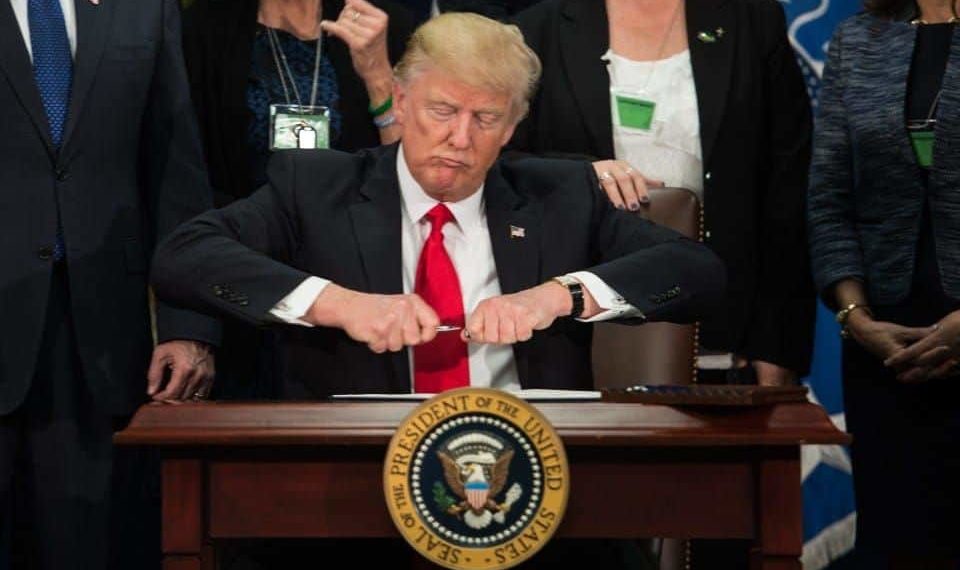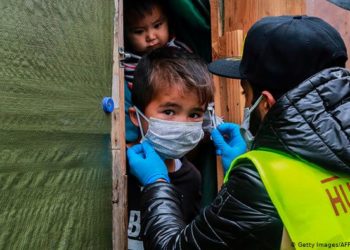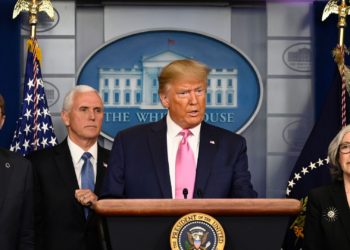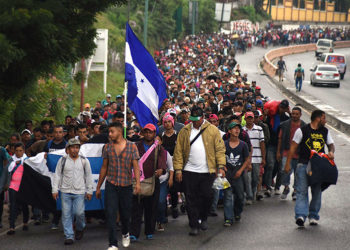The Trump administration moved Monday to block most migrants who cross the U.S. southern border after passing through Mexico from seeking asylum.
A new rule redefining asylum eligibility – to take effect on Tuesday – is the latest attempt to stem the flow of undocumented migrants into the country, and comes amid White House frustration at Congress’s failure to change asylum laws.
The White House’s new rule targets hundreds of thousands of migrants from Central America and other countries who have tried to cross into the United States from Mexico and request asylum.
These requests – increasingly made by families fleeing endemic violence and poverty in their countries – allow the applicants to remain in the United States and to move around freely while their cases are adjudicated, which can take two years.
The Trump administration is trying to unilaterally reverse our country's legal and moral commitment to protect people who are fleeing danger.
This new rule is patently unlawful. We will sue swiftly. https://t.co/38RrhAQHHc
— ACLU (@ACLU) July 15, 2019
Trump administration officials claim any disappear into the country and never appear for their cases, though data from the Department of Justice shows that 89 percent of asylum applicants attend their final court hearing.
The new rule declares any migrant who enters the United States from the southern border and who has not asked for asylum in any of the countries they cross to get to the United States ineligible for asylum.
U.S. law allows any individual to apply for asylum no matter how they entered the country unless they traveled through “a safe third country” on the way.
What constitutes a safe third country, however, has not been legally defined. Canada is currently the only country that’s signed a safe third country agreement with the U.S.
The American Civil Liberties Union announced Monday that it intends to “swiftly” mount a legal challenge to the order.
On Monday, Guatemala’s constitutional court blocked President Jimmy Morales from signing an agreement with the U.S. that would designate it as a safe third country.
The U.S. is also a signatory of numerous international agreements on the status of refugees and asylum seekers, and Trump’s executive order may lead to questions about the country’s compliance with them.
Acting Homeland Security Secretary Kevin McAleenan said the Trump administration’s move, labeled an “interim rule” in lieu of action by Congress, was necessary because previous efforts to change immigration laws to stem the flow of migrants had proven inadequate.
“Until Congress can act, this interim rule will help reduce a major ‘pull’ factor driving irregular migration to the United States … leading to fewer individuals transiting through Mexico on a dangerous journey,” McAleenan said.
The rule includes exceptions for people who can demonstrate they are victims of torture or persecution, but U.S. immigration officials have made clear they consider most of the recent migrants from Central America to be economic migrants, and thus not qualified for asylum.
“The United States is a generous country but is being completely overwhelmed by the burdens associated with apprehending and processing hundreds of thousands of aliens along the southern border,” Attorney General Bill Barr said in a statement.
“This rule will decrease forum shopping by economic migrants and those who seek to exploit our asylum system to obtain entry to the United States,” Barr added.
More on the Subject
Guatemala’s constitutional court has granted an injunction blocking President Jimmy Morales from signing a controversial deal with the United States that would oblige the Central American country to welcome migrants, at least in the short term.
The deal has already been rejected by the two candidates vying for Guatemala’s presidency next month, who said the deal would provoke a humanitarian crisis, as the country is not equipped to welcome large numbers of migrants.






















